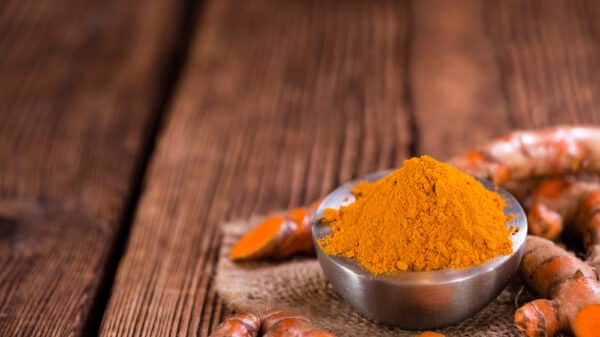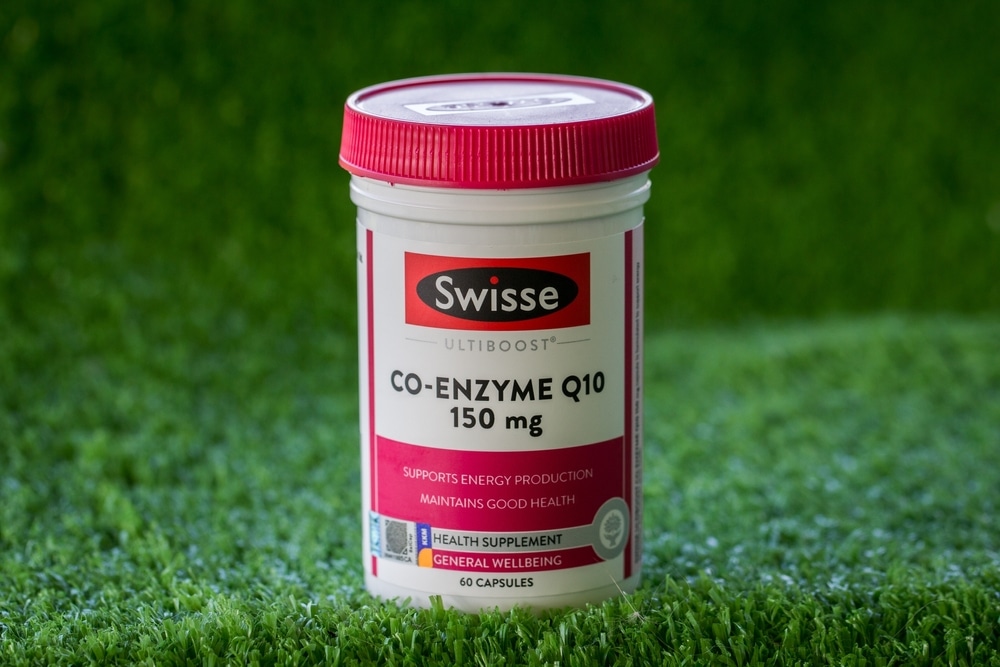About the expert Frederick St. Goar, MD is a highly regarded cardiologist at El Camino Health in California, also serving as the medical director of the hospital’s Norma Melchor Heart & Vascular Institute. With over 30 years of experience with El Camino Health, Dr. St. Goar has made substantial contributions to the field of interventional cardiology. In 2024, he earned both the Andreas Gruentzig Ethics Award, the top honor in interventional cardiology, and the Octane Cardiovascular Innovation Award, which acknowledges innovators in cardiovascular health.
HighlightsCoQ10 is a widely-used supplement known for its potential benefits in energy production and overall health.
Research indicates it may have an effect on blood pressure regulation. While most individuals tolerate CoQ10 well, some mild side effects can occur. A cardiologist offers insights into who should approach this supplement cautiously and when it’s crucial to consult a healthcare professional.
Coenzyme Q10, commonly referred to as CoQ10, has emerged as a popular supplement among individuals seeking to enhance their health and vitality. Renowned for its pivotal role in promoting heart health, CoQ10 aids in energy production at the cellular level and functions as a potent antioxidant, safeguarding cells from damage. Its intriguing potential extends beyond heart health, with studies suggesting benefits in areas like migraine reduction and fertility support.
If you are using CoQ10 for purposes other than heart health, you should still be aware of its possible effects on blood pressure levels.
In the following sections, Dr. Frederick St. Goar, a board-certified cardiologist at El Camino Health, elaborates on how CoQ10 functions in the body, the side effects to be mindful of, and the critical moments when consulting your physician is advisable.
Understanding CoQ10 and Its Impact on Blood Pressure
Dr. St. Goar explains that “CoQ10 is an enzyme that the body naturally synthesizes.” It serves as an antioxidant and affects various cells, notably the endothelium, which is the inner lining of blood vessels. He emphasizes that CoQ10 “may protect and preserve [the endothelium] from damage or deterioration.”
The endothelium is crucial for maintaining blood vessel flexibility. A healthy endothelial lining allows arteries to expand and contract appropriately, helping to sustain normal blood pressure levels. “The integrity of your endothelium is one of many factors that ensure your arteries remain compliant, keeping blood pressure within a healthy range,” he adds.
As we age, our body’s ability to produce CoQ10 naturally wanes, potentially leading to endothelial dysfunction and elevated blood pressure. Some studies propose that supplementing with CoQ10 might counteract this decline, although research outcomes have been inconsistent. Dr. St. Goar notes that while CoQ10 supplementation has been explored as a means to mitigate age-related blood pressure increases, “the data has not been conclusive.” He asserts that there are no definitive indicators to predict who might benefit from it, thus it is not commonly prescribed for this purpose.
Navigating CoQ10 Side Effects
Generally, CoQ10 is regarded as safe for most individuals. However, like any supplement, it is not entirely devoid of side effects.
Dr. St. Goar mentions that “CoQ10 has no well-documented risks and is usually well tolerated by patients.” Nevertheless, some individuals may occasionally experience gastrointestinal issues like nausea, cramping, or diarrhea. “These digestive complications are rare but may occur, particularly if CoQ10 is taken on an empty stomach or in higher doses.” To alleviate discomfort, consider ingesting the supplement with food or splitting the dose throughout the day.
Due to its potential effects on blood pressure, individuals with low blood pressure (hypotension) should approach CoQ10 with caution and ideally under a doctor’s supervision.
It’s also imperative to recognize that dietary supplements in the U.S. are not tightly regulated by the FDA, leading to variations in product purity and strength. Therefore, selecting CoQ10 that has undergone third-party testing for quality is advisable. Look for a USP seal on the packaging as verification from the United States Pharmacopeia. Always consult with a healthcare provider before starting any new supplement.
Determining the Right Dosage of CoQ10
Dr. St. Goar states that “there is currently no definitive information pointing to an ‘ideal’ or ‘effective’ dosage.” Many well-tolerated doses fall within the 100 mg to 200 mg per day range. While many CoQ10 supplements fit this guideline, the optimal dosage will depend on an individual’s health status and the reason for taking it. Those using CoQ10 for heart support, fertility, or other conditions should consult with their healthcare provider to receive tailored recommendations.
The Relationship Between CoQ10 and Statin Medications
A significant number of individuals taking statins for cholesterol management also consider CoQ10 supplementation. Statins can diminish the body’s natural CoQ10 levels, which may lead to side effects such as muscle discomfort.
Dr. St. Goar notes that “statins, commonly prescribed for high cholesterol, can occasionally result in muscle soreness due to low-level inflammation.” Some patients have found relief from this discomfort through the antioxidant and anti-inflammatory properties of CoQ10. However, he cautions that “while it can be low-risk to try, predicting its efficacy and benefits remains challenging.”
Who Should Exercise Caution with CoQ10?
While CoQ10 is generally considered safe, Dr. St. Goar expresses that certain individuals should err on the side of caution.
“CoQ10 should not replace prescribed blood pressure medications, and its use—especially among patients with heart conditions—should be discussed with a healthcare provider,” explains Dr. St. Goar. “It is contraindicated for patients taking the blood thinner warfarin, as it may interfere with its action.” In medical terminology, “contraindicated” means that the use of a certain medication should be avoided due to potential adverse interactions or effects.
If you’re considering CoQ10, it is crucial to consult with your physician first. Healthcare providers can help you ascertain whether it’s safe, recommend an appropriate dosage, and ensure there are no interactions with other medications or supplements you may be taking.
For ongoing insights into wellness, consider subscribing to The Healthy by Reader’s Digest newsletter and following The Healthy on Facebook and Instagram. Continue exploring:
This article details valuable insights into CoQ10, emphasizing its benefits, risks, and the importance of consulting a healthcare professional before incorporating it into your health regimen. By staying informed and cautious, individuals can make the best decisions for their health journey.





























